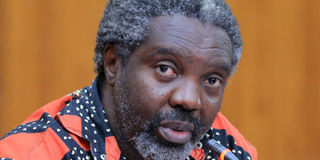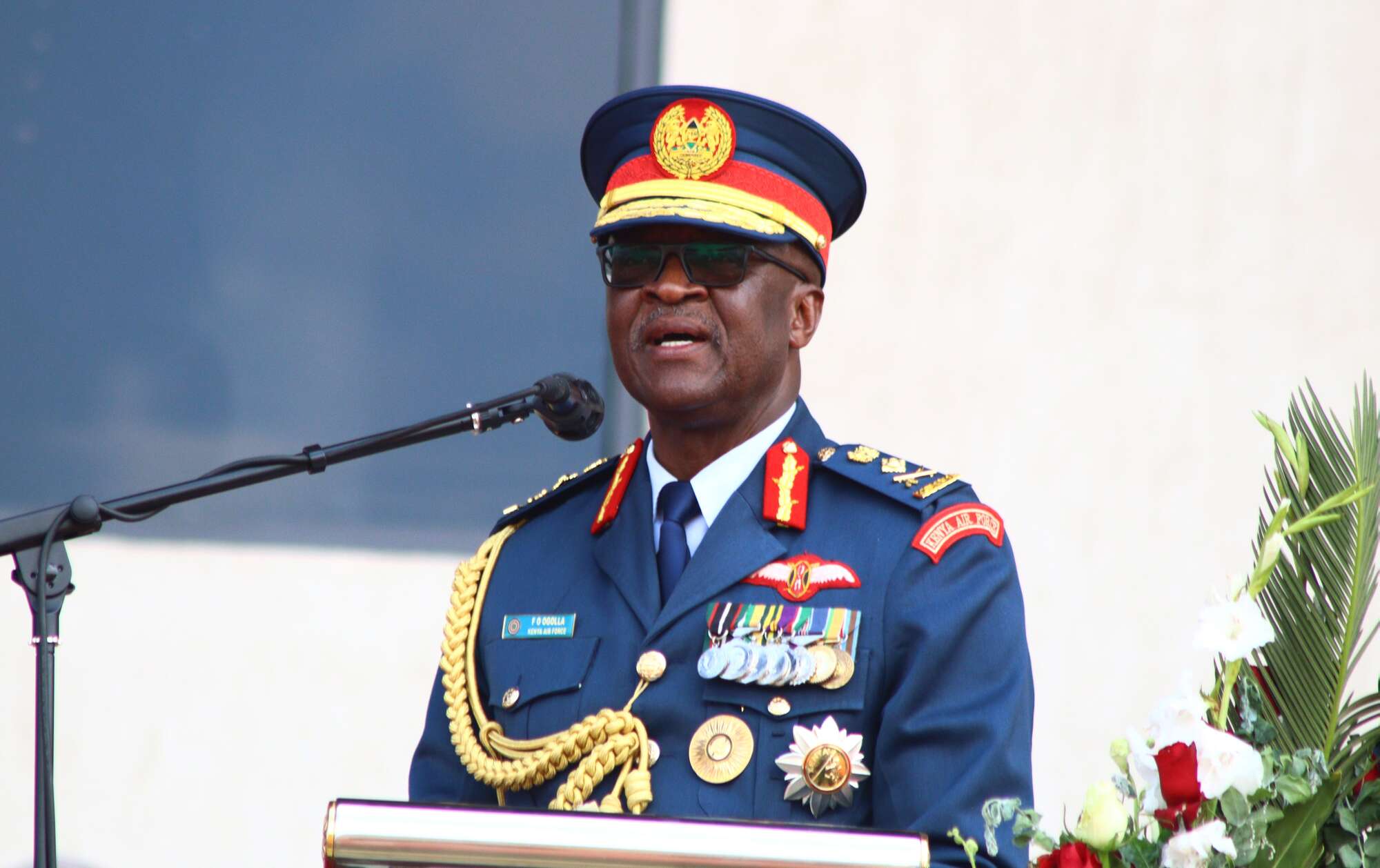Court of Appeal nullifies Akena’s UPC presidency

UPC’s James Akena appearing before the Legal Committee of Parliament on July 8. PHOTO/DAVID LUBOWA
What you need to know:
- In the judgment, Court of Appeal reproduced the results tally sheet for the UPC presidential election that showed that Mr Akena had majority votes in 67 districts translating into 63 per cent.
- Mr Dennis Enap, the former contestant for party presidency and former personal assistant to Mr Akena, welcomed the ruling saying it presents opportunities to iron out the differences that are harboured by the two warring factions
The Court of Appeal yesterday declared that James Akena has been holding the presidency of Uganda Peoples Congress (UPC) illegally and ordered the Opposition party to organise elections to elect a legitimate leader.
In a unanimous decision of the court, it was also held that since there have never been lawful elections by UPC party for the last five years, the de-facto president of the party remains Mr Olara Otunnu, who retired in 2015.
“The UPC continued to carry on its business on the basis of an interim order issued by this court on December 9, 2016 to stay the execution of the orders of the High Court appealed against in this matter. It is now five years down the road and Hon Akena continues to execute the duties of the president of the party, albeit resulting from an illegal process which was quashed in 2015,” ruled Justice Irene Mulyagonja, who wrote the lead judgment.
“It is important for members of the UPC to note that the credibility of UPC will continue to be in doubt if its leadership is not brought into office in conformity with provisions of its constitution, the Political Parties and Organisations Act and the Constitution. In conclusion, this appeal is dismissed with orders that the members of UPC conduct nominations and elect a president in conformity with the constitution of the Uganda Peoples Congress,” the judges ordered.
The other justices on the panel were Christopher Madrama Izama and Elizabeth Musoke.
About five years ago, the High Court quashed the election of Mr Akena as UPC president.
Akena appealed against the High Court decision. He asked Court of Appeal to stay execution of the High Court ruling until disposal of his appeal. Mr Akena remained president of UPC pending disposal of his appeal.
UPC is one of the oldest parties in the country, founded by former president of Uganda Milton Obote, father of Mr Akena.
The ruling resulted from a petition by UPC vice president Joseph Bbosa (deceased) and party officials, Prof Edward Kakonge and Ishea Otto Amizza.
Along the way, Prof Kakonge and Mr Otto had their names struck off the petition and Mr Bbosa remained the lone petitioner.
In September last year, Bbosa died, leaving the cause in limbo. Prof Kakonge was reinstated as the only petitioner by the Court of Appeal.
In the appeal, Mr Akena stated that the trial judge erred in law when he declared that he was not lawfully elected UPC party president. His lawyers argued that UPC issued a roadmap for the elections in March 2015, with instructions for convening district conferences for the nomination of party candidates.
However, lawyers representing the contesting UPC group submitted during the appeal hearing that it was Mr Otunnu, who was UPC president at that time, who should have called such a meeting because he had the authority.
“That in addition, the letter calling for the consultative meeting issued by Mr Akena did not state the agenda for the consultative meeting. As a result, the consultative meeting that was held at Nice Hall in Lugogo, Kampala on July 1, 2015, did not meet the basic requirements for a delegates conference provided for in the UPC constitution,” UPC lawyers of the Otunnu group submitted in court.
They submitted that the process under which Akena was elected was illegal and unconstitutional.
In the judgment, Court of Appeal reproduced the results tally sheet for the UPC presidential election that showed that Mr Akena had majority votes in 67 districts translating into 63 per cent.
The judge said the tally sheet only indicated Mr Akena’s votes but did not show the votes of his rivals.
Justice Mulyagonja said this defeated Akena’s claim that he was declared “unopposed”.
“In my view of the results reproduced in the immediate preceding paragraph, the argument presented by counsel for the appellants (Akena) that Akena was unopposed during the nominations in the districts was not true,” Justice Mulyagonja observed.
“The results in the impugned elections were not consistent with the meaning of a candidate nominated unopposed in article 103 (6a) of the Constitution of the Republic of Uganda, and Section 19 (1) of the Presidential Elections Act. The two provisions are clear on the position that for a candidate to be declared unopposed, there must be no other nomination at all presented to the commission before the closure of nominations for the position of president,” she added.
Justice Mulyagonja further states that in her opinion, the final results of nominations to be declared by UPC’s electoral body, should have been comprehensively displayed in the results sheet indicating the fractions of the votes that each candidate secured on nomination in the districts and signed by the electoral commission and not Akena’s agents like Ojok, Ofwono and Oluka.
“I therefore, agree with the trial judge that the declaration made by part of the electoral commission of the UPC was not provided for by the UPC constitution. Neither was it provided for by the party electoral commission instructions for convening district conferences for nominations of presidential candidates,” the appellate court ruled.
“I also find that designation of Mr Akena as the president elect was a misnomer which led to confusion in the processes of electing the UPC party president,” Justice Mulyagonja said.
She said Mr Akena changed his mind about the validity of Mr Otunnu’s presidency when he did not agree with the manner in which elections were conducted.
Mr Dennis Enap, the former contestant for party presidency and former personal assistant to Mr Akena, welcomed the ruling saying it presents opportunities to iron out the differences that are harboured by the two warring factions.
Mr Otto, the secretary general of the faction opposed to Mr Akena’s leadership, said the ruling should be respected by security organs and the Electoral Commission.




